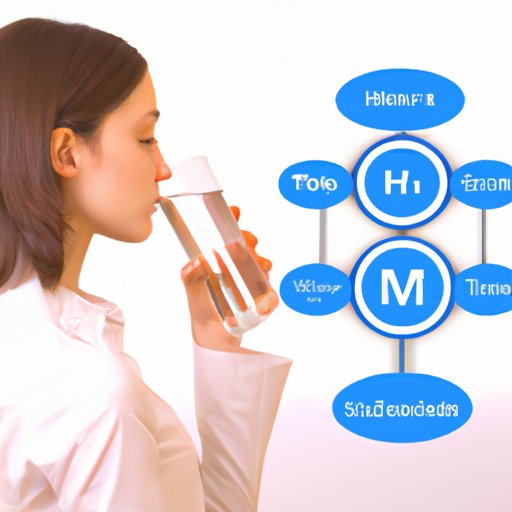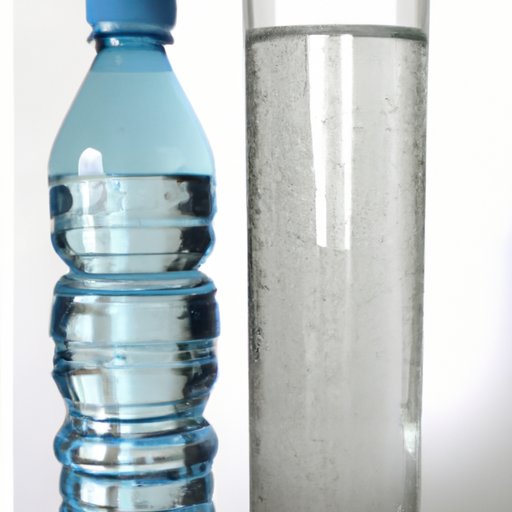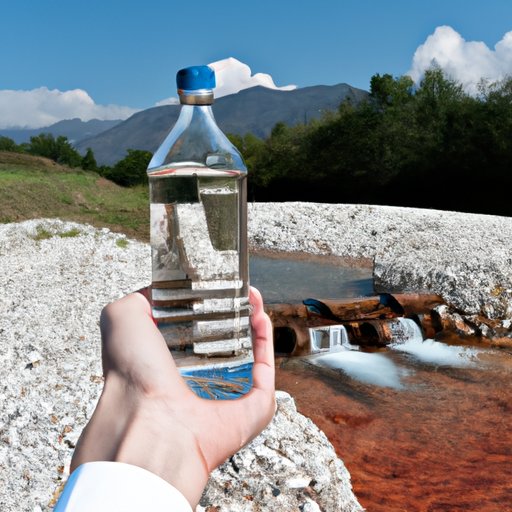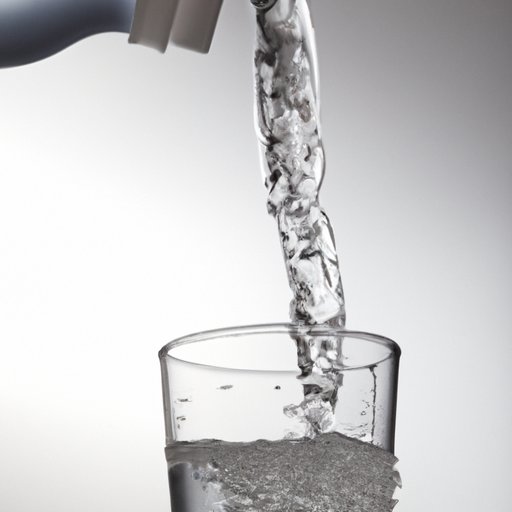Introduction
Mineral water is a type of bottled water that has been sourced from natural springs or wells and contains various minerals such as calcium, magnesium, and potassium. It is often marketed as a healthier alternative to tap water or other types of bottled water due to its naturally occurring minerals. In this article, we will explore the health benefits and risks associated with consuming mineral water.

Analyzing the Nutritional Benefits of Mineral Water
Different types of minerals can be found in mineral water depending on the source. Calcium, magnesium, and potassium are the most common minerals found in mineral water, but other trace elements such as iron, sodium, and zinc may also be present. These minerals are beneficial for our health and can help with bone health, muscle contraction, and nerve function. Drinking mineral water can also help replenish electrolytes lost through physical activity.
In addition to providing essential minerals, mineral water is also typically low in calories and sugar-free, making it an ideal choice for those looking to maintain a healthy weight. It can also be a good alternative to sugary drinks, which have been linked to obesity and other health problems.
Exploring the Health Risks Associated with Mineral Water Consumption
Although mineral water is generally considered to be safe to drink, there are some potential health risks associated with its consumption. The most significant concern is the possibility of contamination from pollutants or bacteria. In certain areas, mineral water may contain high levels of arsenic, lead, or other contaminants that can be harmful if consumed in large amounts. Additionally, if mineral water is not properly filtered or stored, it may become contaminated with bacteria such as E. coli or salmonella.
Another potential risk of consuming mineral water is the side effects caused by the minerals it contains. High levels of certain minerals such as calcium, magnesium, and sodium can cause digestive issues, dehydration, and even kidney stones in some individuals. It is important to read the label of any mineral water you purchase to ensure that it does not contain excessive amounts of any particular mineral.

Comparing Mineral Water to Tap Water and Bottled Water
When it comes to choosing a healthy type of water, mineral water is often compared to tap water and bottled water. When it comes to nutrition, mineral water is the clear winner as it contains essential minerals that are lacking in both tap water and bottled water. However, both tap water and bottled water are usually cheaper than mineral water, so cost should also be taken into consideration when deciding which type of water to drink.
Tap water is regulated by the government and is generally considered to be safe to drink, although it may contain small amounts of contaminants such as chlorine or fluoride. Bottled water is not subject to the same regulations as tap water and can vary greatly in terms of quality and safety. If you are concerned about the safety of your drinking water, it may be best to opt for mineral water.

Investigating the Environmental Impact of Producing and Consuming Mineral Water
The production and consumption of mineral water also has an environmental impact. Extracting mineral water from underground aquifers requires energy, and bottling and shipping the water can also generate emissions. Additionally, many mineral water brands come in plastic bottles, which can take hundreds of years to decompose and contribute to plastic pollution.
There are alternatives to buying mineral water in plastic bottles. Some companies offer refillable glass bottles or cans, which are more environmentally friendly options. Additionally, purchasing water filtration systems for your home can reduce the need for buying bottled water. Filtration systems can remove contaminants from tap water, making it a safer and more sustainable option.
Examining the Regulatory Standards that Govern Mineral Water Production
In order to ensure the safety and quality of mineral water, different countries have established regulatory standards governing its production. For example, the European Union has established maximum levels of contaminants that can be present in mineral water, and all bottled water sold within the EU must meet these standards. In the US, the Food and Drug Administration (FDA) regulates bottled water, and manufacturers must adhere to strict quality assurance procedures.
The regulations governing mineral water production differ from country to country. Before purchasing mineral water, it is important to research the regulations in the country where the product was produced to ensure that it meets the necessary safety standards.
Conclusion
In conclusion, mineral water can provide essential minerals and be a healthier alternative to tap water and other types of bottled water. However, there are potential risks associated with consuming mineral water, such as contamination and side effects from excessive mineral intake. Additionally, the environmental impacts of producing and consuming mineral water should be taken into consideration. Before purchasing mineral water, it is important to research the regulations in the country where the product was produced to ensure that it meets the necessary safety standards.
(Note: Is this article not meeting your expectations? Do you have knowledge or insights to share? Unlock new opportunities and expand your reach by joining our authors team. Click Registration to join us and share your expertise with our readers.)
